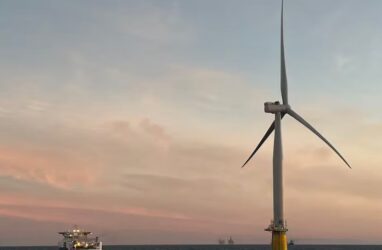Feed aggregator
‘Don’t F&*! The Planet’: Atlassian issues net zero guide for companies cutting climate impact
Tech firm founded by Australians Mike Cannon-Brookes and Scott Farquhar says net zero must be achieved by cutting emissions by 90% and only offsetting the remainder
- Follow our Australia news live blog for the latest updates
- Get our morning and afternoon news emails, free app or daily news podcast
As corporate reports go, the title of Aussie tech firm Atlassian’s guide for other companies to cut their greenhouse gas emissions is as direct and flavoursome as they come: “Don’t F&*! The Planet.”
The firm, founded by Australians Mike Cannon-Brookes and Scott Farquhar, says it is already running its operations on 100% renewable electricity and has a “science-based target” to reach net zero emissions no later than 2040.
Continue reading...Australia to deal with offsetting concerns in nature repair market through methodology work, govt official says
Ending native forest logging in Victoria is long overdue. Australia must protect its precious trees | David Lindenmayer and Chris Taylor
The state’s native forest industry will stop by the end of the year – six years ahead of schedule
- Follow our Australia news live blog for the latest updates
- Get our morning and afternoon news emails, free app or daily news podcast
By the end of the year, Victoria’s trouble-plagued native forest industry will end – six years ahead of schedule. The state’s iconic mountain ash forests and endangered wildlife will at last be safe from chainsaws. And there will be no shortage of wood – there’s more than enough plantation timber to fill the gap.
Yesterday’s announcement by Premier Daniel Andrews is excellent news for forests, the state’s economy and its threatened species. We congratulate the Victorian government for this decision.
Sign up for Guardian Australia’s free morning and afternoon email newsletters for your daily news roundup
David Lindenmayer is a professor at Fenner School of Environment and Society, Australian National University. Chris Taylor is a research fellow at Fenner School of Environment and Society, Australian National University. This article was originally published in The Conversation
Continue reading...How we stop floating wind turbines the size of skyscrapers from drifting away
 Floating wind turbines are emerging as a promising solution – but turbines are also getting bigger at a rapid rate. So how do these colossal structures remain in place?
Floating wind turbines are emerging as a promising solution – but turbines are also getting bigger at a rapid rate. So how do these colossal structures remain in place?
The post How we stop floating wind turbines the size of skyscrapers from drifting away appeared first on RenewEconomy.
CP Daily: Tuesday May 23, 2023
*Portfolio Manager/Senior Carbon Trader, Carbon Cap – London
Free public transport is a great start – but young people won’t give NZ governments a free ride on climate change
Developed biodiversity market schemes have seen $8 mln pledged for credits -report
Xpansiv to launch California LCFS spot contract this summer
Stakeholders counsel ARB not to risk delays to implementing LCFS stringency
UK institutional investors most advanced in the world on climate action -report
RGGI emitters’ permit shortages shrink further in Q1
Brazil swapping Bolsonaro’s bottom-up climate decree for new carbon market approach -report
Coffee, brought to you by bees: a case study in how restoring habitat is a win-win for forests and farmers
Industry urges more EU funding to cover entire CCUS value chain
Global energy company signs MoU with Vietnam on agri-feedstock and carbon credits
NZ’s gas problem: phasing out natural gas in homes demands affordable alternatives first
Virginia board to vote next month on finalising RGGI regulation repeal
Large-scale biofuel CCUS project to apply for Puro.earth removals certification
Recycling can release huge quantities of microplastics, study finds
Scientists find high levels of microplastics in wastewater from unnamed UK plant – and in air surrounding facility
Recycling has been promoted by the plastics industry as a key solution to the growing problem of plastic waste. But a study has found recycling itself could be releasing huge quantities of microplastics.
An international team of scientists sampled wastewater from a state-of-the-art recycling plant at an undisclosed location in the UK. They found that the microplastics released in the water amounted to 13% of the plastic processed.
Continue reading...


